This is a place to listen and discuss episode 27C: The Errant Knight, with pictures, extra details, and historical background.
Episode Summary:
Old foes resurface as Balin, the fugitive knight, flees from King Arthur's court. He'll find himself on a perilous (and, at times, ridiculous) quest, where he'll inadvertently put the events in motion that will start the quest for the Holy Grail. Oh, and Arthur gets the Round Table and gets married.
The creature this week is the little naked person buried just below the ground who will scream horrendously if you try to pick him out. Also, he might just kill you, so bring the pet you love most to take the blow.
The Episode
27C: The Errant Knight
As always, there are spoilers in this post. You might want to listen to the episode first.
This episode...I wasn't incredibly familiar with the story of Balin, but it was hilarious, ridiculous, thrilling, and tragic. I am thoroughly impressed by how well-crafted these legends are. The story of Balin and his brother is woven in with Lot and his rebellion, and even though there are some massive plot holes, the stories do a better job than some modern movies in tying up narrative threads. I loved these stories. Balin killing his brother honestly crushed me, and it was so fun to write the portions where Arthur was setting up the Round Table. There are so many great stories we can talk about now. Next up in the Arthurian legends: the story of Lancelot. That won't be for some time, though. There's a whole world of folklore out there.
Elaborations and Errata
Plot holes
The magic sword
Notice how we didn't talk about what in the world was going on with the damsel in episode 27B who asked Balin to draw the sword from the scabbard? That's because it's a mess. I mean, all of these stories are kind of a mess, but this one contradicts itself even in the same version. Basically, Merlin tells us the damsel was evil. She loved a knight, but her brother killed the knight, so she made a deal with a sorceress that whoever could draw the sword from her scabbard would be the one to kill the damsel's brother. This might imply that Balan was somehow the damsel's brother, but Merlin just dropped the prophecy there, and no one really picks it back up to explain it. I decided to leave it where Balin simply drew a magical sword and not get into the weeds on an episode that was already pretty long.
The invisible knight
We aren't given backstory on what issue Garlon had with the crying knight. My guess is that the crying knight shamed Garlon in some small way, and Garlon decided to relentlessly pursue him. Knowing that an invisible knight is chasing you is enough to cause anyone anxiety, and so that's probably why he was crying. Garlon is a jerk, too, so I can absolutely see him just hassling Balin and the lady as they go, especially since the lady is associated with the crying knight. Why he didn't recognize her or Balin after hunting them, or why the guards let Balin into the banquet with a sword, is anyone's guess.
That story right after the Dolorous Stroke
Balin found a knight on the road who was about to kill himself. Balin, ever the helper, asked him what was wrong. He told Balin that his lady didn't return his love, and they go talk to the lady. They found her in the act of sleeping with a grotesquely ugly knight. The knight Balin found forlorn on the road killed them both, and killed himself. Balin then left immediately so people didn't think he committed a triple murder. See? It was just too dark, weird, and irrelevant to include. Besides, we had a red knight to meet.
The Dolorous Stroke and the Spear of Destiny
The Spear of Destiny is also called the Spear of Longinus, named after the Roman centurion who used it to pierce Christ's side. He is unnamed in the Bible, but he is venerated as a saint by the Roman Catholic Church and the Eastern Orthodox Church.
There are some issues with the whole part where Joseph of Arimathea showed up in England in the the 1st century AD. Namely, that it was still a pre-Roman, Celtic Britain, and it seems fairly unlikely that the native Celts would have been fine with someone who would probably be seen as a Roman traveling halfway across the world to establish a castle and a line of knights. The Romans didn't even launch expeditions in earnest until Claudias started invading the island in 44 AD, a full eleven years after the crucifixion.
Basically, lets not worry about the timeline. As they say in Mystery Science Theater 3000, "it's just a show. I should really just relax."
Also, it's called both the Dolorous Stroke and the Dolorous Blow. I used both because I like being confusing.
Divine retribution
If you are a freshman English major, look for this in any text from medieval literature and you automatically have a paper to write. Divine retribution as well as the sacred and profane. Actually, just putting the words 'sacred' and 'profane' in your paper probably gets you at least a B-.
The Christian(ish) God of the Arthurian legends is an interesting one. Intention doesn't seem to matter to him at all, and even actions seem to have inconsistent responses. Sleeping with your half sister? Terrible. The solution, according to Merlin who, in most stories, is God's agent to Arthur? Kill many children. Using the Spear of Destiny to attack King Pelam? Horrible. The fact that King Pelam had clearly lost his way and members of his own family were literally murdering people in the streets? Meh, no big deal.
You could talk for pages and pages on this, but it's just a point I wanted to bring up. I don't think there is an easy answer.
Mandrake roots
Ok, now for the fun of looking at a bunch of naked plants!




Errata
- I did keep saying Car-lion instead of C-eye-leon for the city in which Arthur was besieged in episode 27A. That was intentional. I didn't want to change things up on the last episode when all it would serve to do would confuse people.
- A fairly big one. As you will see in the comments, I accidentally used "England" instead of "Great Britain" throughout this show, which would seem to imply that King Arthur is an English legend. That's not the case - the earliest stories about him were Welsh, and he's a fairly-important Welsh hero. The modern nation of England didn't exist at all in the time in which Arthur was supposed to have existed. Of course, there are English stories about him, and some of the most famous stories of his most famous knights were written in French. There's also speculation that he might have been a Scottish warlord. Regardless, King Arthur wasn't a solely, or even originally, English legend and I should have been more nuanced in the portrayal.
The weird product this week
The caffeinated soap. Why would anyone need this?
This week's sponsor
SeatGeek was incredible to sponsor this episode. If you're looking for tickets, check them out. They pull tickets from all over the internet into one place, and they show you the best deals based on price/seat location. If you make a purchase with them, be sure to use the promo code MYTHS so you can get a $20 rebate off your purchase. You can click the image above to go to the site.
Music:
“Decompression” by Blue Dot Sessions | “Celadon” by Podington Bear |“Waltz Opus Posthume” by Blue Dot Sessions | “Now You Are Here” by Sergey Cheremisinov | “Lorca” by Thorn1 | “Independent Film” by Steve Combs | “Chasing the Port Chains” by Rolemusic | “Turquoise” by Podington Bear “March” by Kai Engel | “Midnight Blue” by Podington Bear | “Sepia” by Podington Bear | “Trillium” by Podington Bear
Myths and Legends Member Feed: (Protected Content)

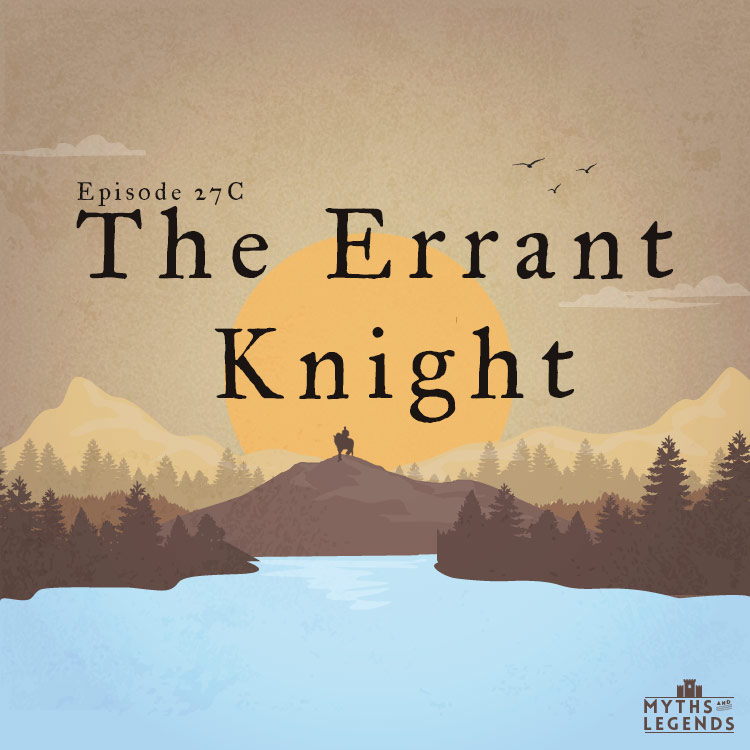
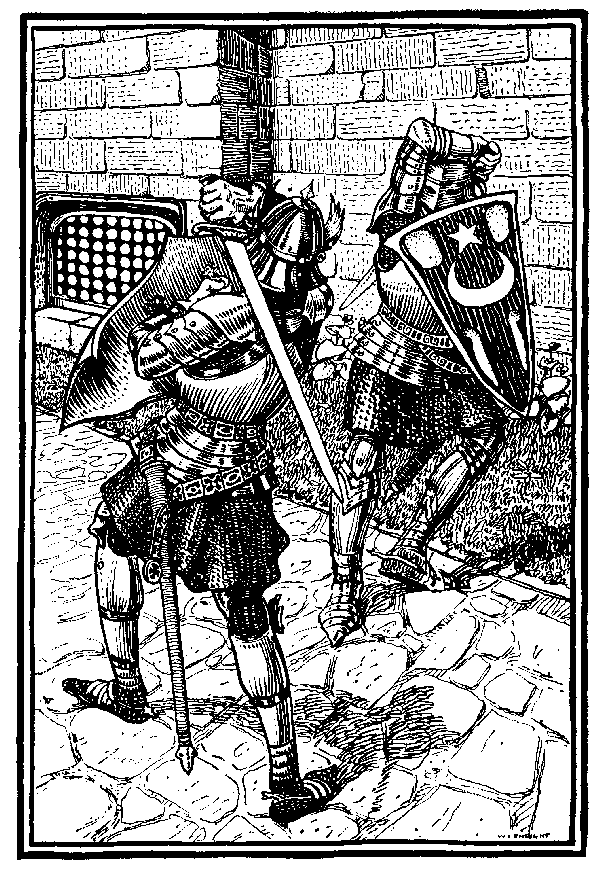


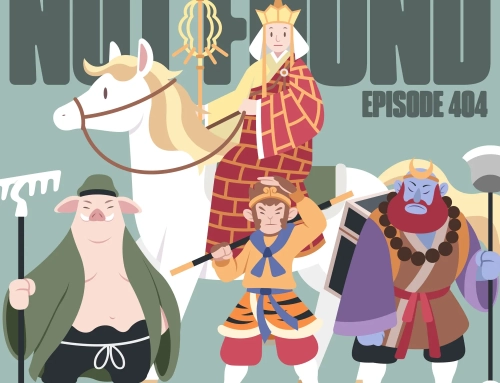
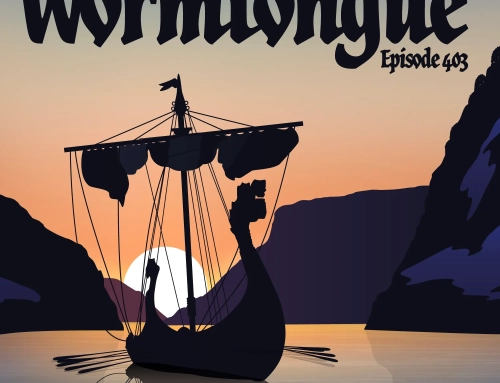
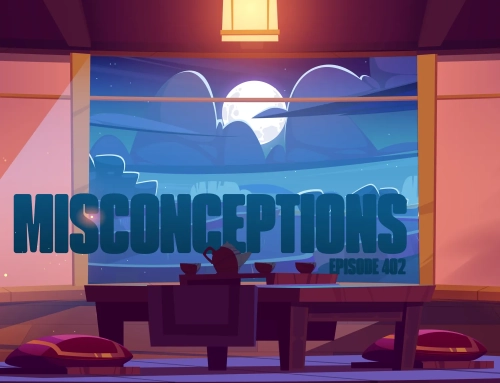
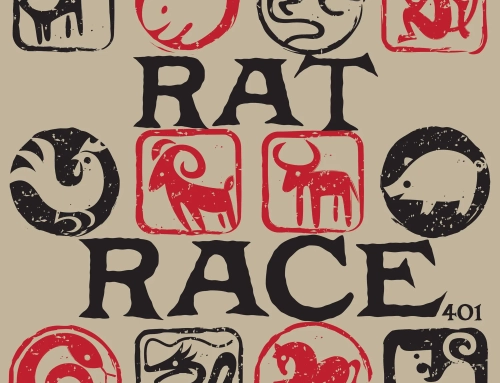
While Balin and Balan have no difference in pronunciation for modern English, there would be a difference for either French or Old English (not sure which language the names come from). In French, “in” and “an” are two separate nasal sounds, such as in “sans” and “vin” respectively (though still hard to distinguish if not trained to hear them). In Old English, “i” made the sound like in “pit,” and “a” made the sound like in “pat.” For either language, the stressed syllable would be different than the stressed-unstressed manner of speaking modern English has. So, while it’s difficult to differentiate between the two now, way back when, there would have definitely been a difference, be it a slight one (like Perry and Barry vs Teri and Terry).
Hey Jason,
I have enjoyed immensely listening to these recent King Arthur episodes. You’ve been doing a great job with the podcast, and it has just been getting better and better over time. I’ve even been so inspired by you that I’ve thinking of starting my own pocast, but am a little intimidated by of all the work involved in putting together a quality show.
PS If you’d like someone to help with proof editing, I would be glad to help. Noticed some small typos in article. ;)
Cheers,
Wilson
Thanks so much for the offer! I have someone working with me as an editor now, but unfortunately she didn’t take a look at this article. I also wrote it at 1am in the morning… I’ll go through and look it over.
Also, drop me a line at Jason@mythpodcast.com if you’re thinking of starting a podcast. I can save you a lot of headaches.
Thanks! Glad you like the show!
That’s a good question. The process is long one. I’m usually working on three shows at once: recording and editing next week’s, writing the show for the week after that, and researching the one coming up in two weeks. If I’m really on-the-ball, I’ll be finding different versions for stories coming up in four weeks, but that has only happened like twice in the past year. My very amazing wife has been working on the show for the past few episodes (since Thor), editing transcripts, doing design, and generally just storyboarding so we can work out the best way to tell the stories. She also keeps me from getting too boring or off-track with my digressions.
It’s a lot of work, but the researching, writing, and the graphic work comes a bit easier than the recording and audio editing. These King Arthur stories were rough. Aside from more (and longer) sources than usual, there were so many directions to go with the story that it was hard to pick one and go with it. Coupled with this one being 50 min long. It was fun, though, and I think it went well.
I’ve lived a short walk from Caerleon for pretty much my whole life, and I just wanna say that it’s pronounced kuh-LEE-un. It doesn’t really matter, but I just wanted to bring it up.
Also, while its not exactly offensive, it still feels weird when you call England, well, England. I dunno. The Arthurian legends are taught to pretty much every welsh kid, it’s a pretty huge part of our culture and so it just feels wrong when it’s Anglicised. I mean, he’s our equivalent of like William Wallace, so it’s gross when people imply that he had any connection to the modern state of England. It doesn’t matter but still, you know?
Thanks for letting me know about that. With this one, I was using Malory as sort of an anchor point and working backward from that, supplementing with previous medieval works. He, apparently, substitutes England for Great Britain throughout. You’re right, King Arthur doesn’t really have any connection to the modern state of England, and the earliest stories about him were Welsh. It was an oversight on my part and a detail I should have followed up on and corrected, and for that I’m sorry. I think in the first set of King Arthur stories I was very careful to say Great Britain/the Britons and avoid saying England, but with Malory and the other sources it just seeped in this time.
I’ll run a correction in next week’s show, and it does matter to me, so thank you for bringing this to my attention, and, again, I’m very sorry about the oversight.
Re: Creature of the week- Surprised there wasn’t a Harry Potter connection!
Yeah…I’ve only read the first four books of the Harry Potter series, and that was when they came out. I remember there being a long wait between the 4th and the 5th, so I just lost track of the series and never picked it back up. I’ve seen the movies, but even that was years ago… I wish I would have remembered and made the connection now.